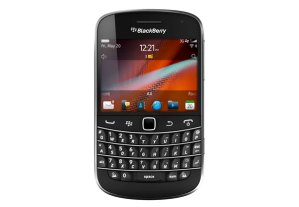
Both Canada’s Research in Motion and Microsoft are taking steps to embrace Android and iOS devices, even as they back their respective BlackBerry and Windows Phone platforms: RIM has announced it will support iOS and Android devices in its mobile device management services, and Microsoft has agreed to license out key technologies to AgreeYa Mobility to develop mobile apps that can tie into Microsoft-specific services like SharePoint, Active Directory, Azure, and Remote Desktop.
First, Research in Motion has announced BlackBerry Mobile Fusion, a new mobile device management service that extends BlackBerry Enterprise’s capability to remotely manage and configure BlackBerry devices (like smartphones and the PlayBook) to include iOS and Android device management. The capability could be a major win for RIM in the enterprise and government markets, where employees are increasingly bringing in their own iOS and Android devices for use in the workplace—and RIM is having quite a lot of trouble maintaining its marketshare. By expanding device management to non-BlackBerry platforms, RIM enables its largest customers to integrate iOS and Android devices into their existing mobile tech procedures and management—and helps ensure those customers stay with RIM. Services included in BlackBerry Mobile Fusion include the ability to remotely lock or wipe a phone, manage a phone’s secure connection, manage multiple users per device, control available apps and software, and control access to corporate domains data.
BlackBerry Enterprise Server remains one of RIM’s crown jewels—although the company has been taking hits over its smartphone and tablet offerings, corporations and large organizations still value BlackBerry Enterprise, in part for its security. RIM has repeatedly told governments looking to monitor mobile communications that there’s no back door to the encrypted communications used by BlackBerry Enterprise.
In the meantime, Microsoft is looking to open up its own proprietary services to non-Microsoft mobile platforms. Microsoft has announced a deal with AgreeYa Mobility under which Microsoft is licensing protocols to its enterprise services (things like SharePoint, Azure, Remote Desktop, and Active Directory) so AgreeYa can develop apps for iOS, Android, and BlackBerry that hook into Microsoft’s services. The idea is that Microsoft will still tout Windows and Windows Phone as the preferred ways to hook into its own enterprise and corporate services, but the AgreeYa deal also means solutions will exist for folks who bring their Android, iOS, and even BlackBerry devices into Microsoft-centric workplaces—like RIM’s move with BlackBerry Mobile Fusion, it means solutions will exist for the non-Microsoft platforms being brought into enterprises…and, hence, those enterprise customers are more likely to stick with Microsoft technology.


